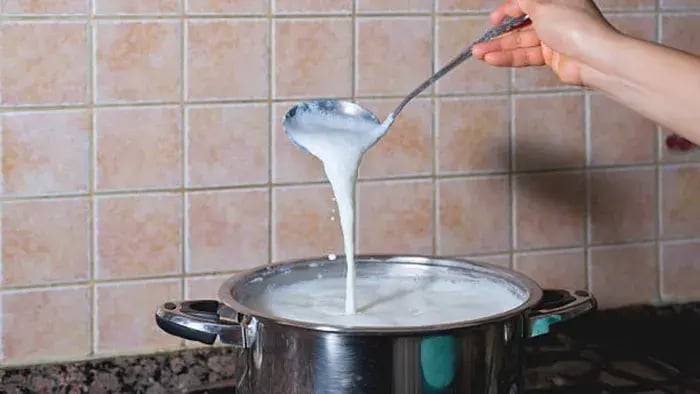- Buttermilk (Chaas)
- Curd (Dahi)
- Paneer (Cottage Cheese)
- Miso Paste
- Idli and Dosa (Fermented Foods)
- Boosted Plant-Based Milk (Soy or Almond)
- Nutritional Supplements (Drops or Powders)
Introduction

Vitamin B12 is necessary for the body’s energy, nerve function, and healthy red blood cells. For growing kids and adults alike, a steady nutrient intake prevents fatigue, weakness, and concentration issues. However, since most natural sources of Vitamin B12 are animal-based, those following a vegetarian diet – especially in Indian households – often face challenges in meeting their daily needs.
While the Indian vegetarian diet is rich in many vitamins and minerals, B12 is one of the few nutrients that cannot be obtained through plant foods alone. Deficiency can develop slowly and show up as tiredness, irritability, or poor focus—symptoms that can be easily mistaken for something else.
The good news is that several fortified and naturally supportive options can be included in vegetarian diets to increase B12 intake. Fortified dairy products, nutritional yeast, fortified cereals, and some fermented foods are helpful sources. Regular consumption of curd, paneer and milk, when sourced from reliable fortified brands, can support healthy levels.
With a little planning, you can maintain B12 through a balanced vegetarian diet. By knowing which foods to include and keeping an eye on symptoms, you can ensure your family gets this essential vitamin simply and sustainably.
7 Vegetarian Foods That Help Ensure Adequate Vitamin B12 Intake in Indian Diets

Vitamin B12 is essential for healthy nerves, energy levels, and red blood cell production. But for vegetarians, especially in Indian households, getting enough B12 through food alone can be tricky, as most natural sources are animal-based. However, some simple, easily available vegetarian options—either fortified or supportive—can help meet daily needs. Here are 9 such foods that are practical, nourishing, and easy to include in your everyday Indian diet.
Buttermilk (Chaas)
Research done by FSSAI states that buttermilk, especially made at home from curd, retains some amount of B12 and is a gentle way to boost this vitamin. It’s perfect for summers and acts as a natural coolant. Offering chaas with lunch helps your child stay hydrated and nourished with a steady source of beneficial nutrients.
Curd (Dahi)
Curd made from milk can be a helpful source of B12. As per a study conducted by, Public Health Nutr 2014 it also supports gut health, which is important for nutrient absorption. Serve it plain, with rice, or as a raita. Homemade curd may not always contain high B12, but curd from fortified milk adds better value.
Paneer (Cottage Cheese)
Research published in J Food Sci Technol. 2011 states that paneer is a good vegetarian-friendly addition to support B12 intake. Whether served in sabzi, parathas, or rolled into frankies, it’s a flexible food that’s rich in protein and can help bridge the nutritional gap. Kids with lactose intolerance can have tofu boosted with vitamin B12. According to FSSAI, tofu is a great vitamin B12 rich food that can be added to a kids vegetarian diet.
Miso Paste
As per a study published in Food Sci Nutr. 2022, miso, made from fermented soybeans and grains, offers small but valuable amounts of B12. It can be added to soups, broths, or used as a base in marinades. Its savoury taste adds variety to Indian meals and introduces your child to different food textures and flavours.
Idli and Dosa (Fermented Foods)
Though not high in B12 on their own, according to Public Health Nutr in 2014, fermented foods like idli and dosa can support better digestion and help the body absorb B12 more efficiently. Pair them with chutneys made from curry leaves or moringa for added nutritional support. Regular inclusion helps overall gut health, which plays a role in vitamin absorption.
Boosted Plant-Based Milk (Soy or Almond)
Research published in J Food Sci Technol 2017, many plant-based milk options like soy, almond, or oat milk come boosted with B12. These are now easily available in urban supermarkets. Use them in porridge, smoothies, or hot drinks. Just check the label for B12 fortification before purchasing.
Nutritional Supplements (Drops or Powders)
Research conducted by Eur J Nutr 2022 suggested that when food alone isn't enough, B12 supplements in the form of powders, drops, or sprays can be a supportive option, especially for young children or strict vegetarians. Many pediatric-friendly products are available in Indian pharmacies and online. Add them to milk or curd after consulting your doctor for the right dosage. This helps ensure your child doesn’t miss out on this essential vitamin even with a limited diet.
Conclusion
.webp?width=700&height=394&name=idli-and-dosa-(fermented-foods).webp)
Ensuring enough Vitamin B12 in a vegetarian diet is possible with a little planning and smart food choices. By including fortified dairy, cereals, and simple everyday foods, you can support your child’s energy, focus, and overall well-being. These options are easy to find, familiar to Indian kitchens, and can be gently added to regular meals to maintain healthy B12 levels naturally.
Her love for storytelling began with reading her grandfather’s speeches, where Tarishi saw the power of words in creating lasting memories. Combining her passions for food and writing, she has turned her life into a fulfilling path of sharing stories that celebrate flavours and how food brings communities together.
The views expressed are that of the expert alone.
The information provided in this content is for informational purposes only and should not be considered a substitute for professional medical advice, diagnosis, or treatment. Always seek the advice of your physician or another qualified healthcare provider before making any significant changes to your diet, exercise, or medication routines.
References
https://pmc.ncbi.nlm.nih.gov/articles/PMC4266598/
https://pmc.ncbi.nlm.nih.gov/articles/PMC9189588/
https://pmc.ncbi.nlm.nih.gov/articles/PMC4008736/
https://pmc.ncbi.nlm.nih.gov/articles/PMC4266598/
https://fssai.gov.in/upload/media/FSSAI_News_Vitamin_NDTVFood_31_08_2021.pdf
https://pmc.ncbi.nlm.nih.gov/articles/PMC5756203/
https://pmc.ncbi.nlm.nih.gov/articles/PMC10030528/
https://fssai.gov.in/upload/media/FSSAI_News_Vitamin_NDTVFood_31_08_2021.pdf
















